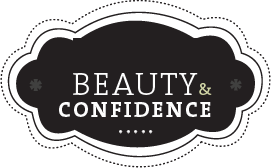Common Cold: How Close Are We To a Cure?

Each year, American parents hustle their kids to the doctor for 25 million disappointing -- and ineffective -- consultations. Why? They're looking for a cure for the common cold that's yet to be found.
It's considered the most common illness in the world, and Americans alone sneeze, sniffle and cough their way through about a billion colds a year, according to National Institutes of Health. And contrary to popular belief, antibiotics don't help, because antibiotics treat illnesses caused by bacteria -- not viruses like the common cold.
Unfortunately, most experts say we're likely still far from a cure for the common cold. However, scientists have recently uncovered two new exciting discoveries to give cold sufferers hope.
Possible Cures
Brand-new research at the University of Ghent in Belgium found that attaching small particles of silver to good bacteria and introducing them into the body -- perhaps using a nasal spray -- appears to destroy both the common cold and flu viruses. However, scientists warn it's too soon to glean too much from the findings; much more research is required to determine the procedure's effectiveness and safety before any treatment is available to the public.
In 2009, the University of Maryland and the University of Arizona energized the medical community by decoding the genomes of 99 strains of the common cold virus. As a result, scientists can now begin to develop vaccines to target these strains. Surprisingly, however, pharmaceutical companies haven't jumped on this development -- perhaps fearing the public won't buy an expensive drug for a typically minor ailment. Of course, patients with asthma or chronic obstructive pulmonary disease who catch a simple cold can suffer a chain of more serious health problems. These individuals would greatly benefit from the cold vaccine promised by this research. But without funding for further research, cold vaccine development is at a stalemate.
Vitamins
What's the scientific community's insight into the preventive promise of vitamins? Indecisive, at best. Numerous studies have failed to prove that vitamin C can cure, prevent or shorten a cold. Research into zinc has also seen mixed results; most studies show no benefit -- although some seem to indicate it can be helpful if taken within 24 hours of the first cold symptoms. Similarly, researchers have found mixed results on the effectiveness of Echinacea -- and some users have noted unpleasant side effects including upset stomach and diarrhea.
Until There's a Cure
For now, experts say there's not much we can do to avoid getting the common cold except wash our hands, get plenty of rest and accept the fact that we'll probably still catch a cold or two this season. If you do, find comfort in the fact that most colds run their course in one or two weeks.
To ease cold symptoms:
- Drink plenty of fluids (water and juice)
- Skip alcohol and caffeinated beverages
- Gargle with warm saltwater, which may help ease a scratchy throat and expel fluid caught in the throat
- Try over-the-counter cold and cough medicines and antihistamines (check the label for age restrictions)
- Use a humidifier to moisten mucous membranes, which may decrease the risk of a stuffy nose and scratchy throat
- Go with a soft tissue so you don’t irritate the skin around your nose
And of course, always call a doctor if you're concerned or your child has a cold lasting more than 10 days, severe ear pain, an extremely sore throat, trouble breathing or a fever that lasts more than 48 hours.
Photo by Sharon McCutcheon on Unsplash
Like this article? Get more by following us on Facebook at Beauty & Confidence.

